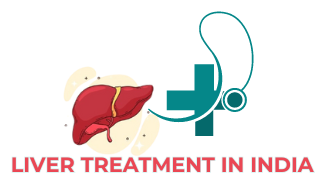Why Is Exercise Vital in Preventing Liver Disease?
Overall health depends on leading a healthy lifestyle, and one important factor that is sometimes disregarded is the importance of exercise in preventing liver disease. Since liver illnesses are becoming more commonplace worldwide, it is critical to understand the benefit of incorporating exercise into lifestyle for liver disease prevention. Beyond its cosmetic advantages, exercise is essential for protecting the liver from a number of diseases. It has a significant effect on liver health, exercise and liver disease risk reduction such as fatty liver disease and reducing inflammation. Examining the nuances of this relationship helps to clarify the processes by which exercise becomes a highly effective preventative measure against liver disorders.
Overview of Liver Disease and Its Impact on Health

Alcoholic Liver Disease
Excessive alcohol use is one of the most common causes of liver damage and can result in alcoholic liver disease. Long-term alcohol misuse can lead to fatty deposits, inflammation, and eventually cirrhosis, a disease that damages the liver by replacing good liver tissue with scar tissue. Another common disorder is non-alcoholic fatty liver disease (NAFLD), which is frequently linked to obesity and metabolic syndrome. It is associated with hepatic fat accumulation, which can develop to non-alcoholic steatohepatitis (NASH), cirrhosis, and ultimately liver failure.
Hepatitis
Hepatitis caused by viruses, such as hepatitis B and C, is another important cause of liver damage. If these infections are not treated, they may result in chronic liver disease by inflaming and damaging liver cells. Because hepatitis B and C can become chronic infections and raise the risk of cirrhosis and liver cancer over time, they are very dangerous.
Other Liver Issues
Liver illness affects more than just the liver; it affects overall health. Because the liver is essential to metabolism and detoxification, dysfunction in it can result in a number of systemic issues. These could be ascites or edema in the legs or belly, jaundice, exhaustion, stomach pain, bruising and bleeding easily, and cognitive decline. Moreover, severe liver disease raises the risk of complications and fatality by affecting the cardiovascular and renal systems, among other organ systems.
Understanding the Importance of Exercise for Liver Health
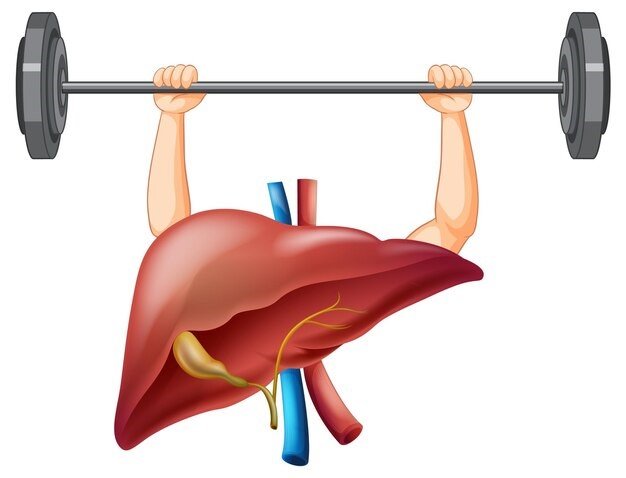
Keeping the liver in optimal health is essential for general health since the liver is involved in metabolism, detoxification, and nutrient storage. Studies have been emphasizing more and more in the past few years how importance of exercise in preventing liver disease, overall liver health and function. For those looking to improve their general health and reduce their risk of liver-related diseases, it is crucial to comprehend the complex relationship between exercise and liver disease risk reduction. A fascinating narrative highlighting the significant benefits of adopting physical activity into one’s lifestyle is revealed when investigating the significance of exercise for liver health. These benefits range from boosting better blood flow and metabolic balance to minimizing the accumulation of toxic lipids.
Benefits of Regular Physical Activity for Overall Well-being

Maintaining a healthy weight, exercise and liver disease risk reduction like diabetes, heart disease, and some types of cancer are made easier with regular physical activity.
Endorphins, which are released when you exercise, can lessen tension, anxiety, and depressive symptoms. Additionally, it elevates mood and encourages deeper sleep. Engaging in physical activity increases cerebral activity, hence enhancing memory, focus, and general cognitive performance.
Frequent exercise increases endurance and decreases weariness, giving you more energy for everyday tasks. Being physically active raises one’s level of mobility, flexibility, and balance while lowering the chance of accidents and falls. This improves one’s quality of life all around.
Sports and group fitness participation can strengthen social links, lessen feelings of loneliness, and enhance mental health. Engaging in physical activity provides a constructive way to release tension, aid in mental clarity, and encourage calmness. Frequent exercise can lead to a better life by reducing the chance of acquiring type 2 diabetes, obesity, osteoporosis, and other chronic illnesses.
Mechanisms Of Action Behind Exercise Benefits For Liver Health

Modern health and wellness research is built on the understanding of the mechanisms of action behind exercise benefits for liver health by which exercise bestows its many advantages. The physiological and biochemical processes that exercise activates are numerous and multidimensional, ranging from improving cardiovascular health to improving cognitive function. This investigation, which delves into the complex interactions between biological systems, highlights the significant influence that physical activity has on human health. We can optimize exercise prescriptions and create new avenues for health and longevity interventions by understanding the mechanisms of action behind exercise benefits for liver health.
Promotion of Fat Metabolism and Reduction of Liver Fat Accumulation
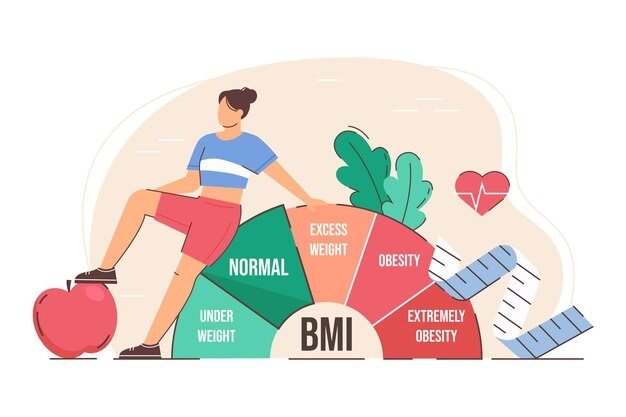
Frequent exercise increases the activity of the enzymes responsible for lipolysis, the breakdown of fats, which improves fat metabolism. Running, cycling, and swimming are examples of aerobic exercises that encourage the body to use fat reserves as a source of energy, which lowers total body fat.
Best liver transplant clinic states that weightlifting and other forms of resistance training increase muscle mass, which raises metabolism and aids in long-term fat loss. Hormones like growth hormone and adrenaline are secreted more readily during exercise, and this helps to improve the mobilization and use of fat.
Due to its ability to improve insulin sensitivity and reduce inflammation, physical activity is essential in lowering the buildup of liver fat. Incorporating exercise into lifestyle for liver disease prevention also prevents the development of fatty liver disease by lowering the levels of triglycerides and free fatty acids in the liver, according to studies.
Enhancement of Blood Circulation and Oxygen Delivery to the Liver

The body’s circulation is boosted by exercise, and this includes the liver. Improved oxygen delivery to the liver through increased blood flow supports the organ’s metabolic processes.
Frequent exercise improves circulation by lowering fatty deposits in the liver. Toxin disintegration and detoxification procedures are aided by an increased oxygen supply to the liver.
Because exercise increases the blood flow to the liver, it helps avoid disorders like fatty liver disease. Enhanced circulation promotes overall liver health by making it easier for nutrients to reach the liver cells. Engaging in physical activity increases the liver’s effectiveness in metabolizing lipids and digesting nutrients.
Regulation of Inflammatory Processes and Immune Function

By lowering levels of pro-inflammatory cytokines, exercise modifies inflammatory processes. Frequent exercise can strengthen immunity by encouraging the release of cytokines that reduce inflammation. The body’s pro- and anti-inflammatory marker balance is regulated in part by exercise.
Engaging in physical activity can lower the chance of developing long-term inflammatory diseases like obesity, diabetes, and cardiovascular disease. Exercise and liver disease risk reduction-It has been demonstrated that moderate exercise enhances the immune system’s response to pathogens, lowering the risk of infections.
In order to maintain the ideal balance of the immune system and inflammation, regular moderate-intensity exercise is advised. Exercise has the potential to affect the body’s inflammatory response in both acute and chronic ways. Acute exercise can have an immediate anti-inflammatory effect, while chronic exercise promotes long-term regulation.
Types and Intensity of Exercise for Liver Health
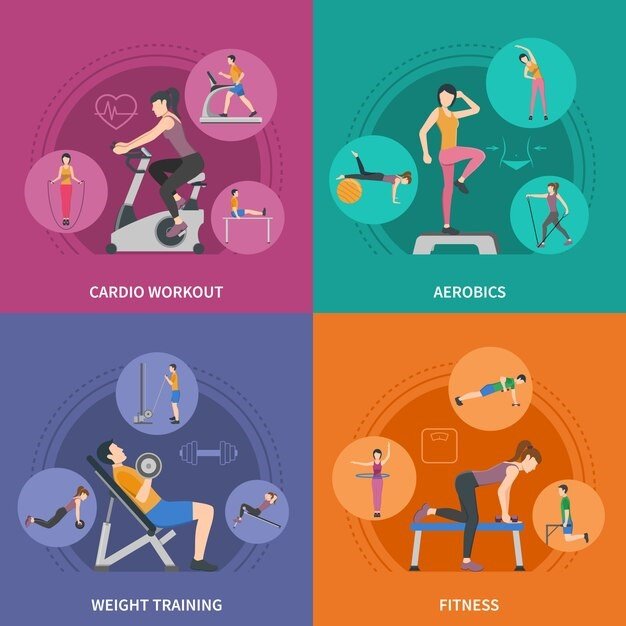
Sustaining optimal liver health is vital for general health because this essential organ is involved in metabolism, detoxification, and nutrition storage. Importance of exercise in preventing liver disease and in liver care, even if dietary practices and medicinal therapies are frequently prioritized. Examining the types and intensity of exercise for liver health takes us into a field where exercise can be a powerful instrument to protect and enhance liver function. Knowing how different types and intensity of exercise for liver health affect the liver and what intensity is best for it will help you create customized fitness plans that support liver longevity and health, whether you prefer resistance or aerobic training.
Aerobic Exercises

Aerobic exercises, which include swimming, cycling, jogging, and brisk walking, improve blood circulation throughout the body and support liver health. Mainly Aerobic Exercise, incorporating exercise into lifestyle for liver disease prevention such as fatty liver disease by reducing excess fat accumulated in the liver.
Exercises involving aerobic activity boost the synthesis of enzymes that support liver detoxification processes. These workouts improve insulin sensitivity and lower the risk of diabetes and insulin resistance, two conditions that can adversely affect liver function.
Being physically active for at least half an hour on most days of the week will help you keep a healthy weight, which is important for the health of your liver. In addition to lowering inflammatory levels in the body, aerobic exercise also lessens liver stress and lowers the incidence of liver disorders.
Resistance Training
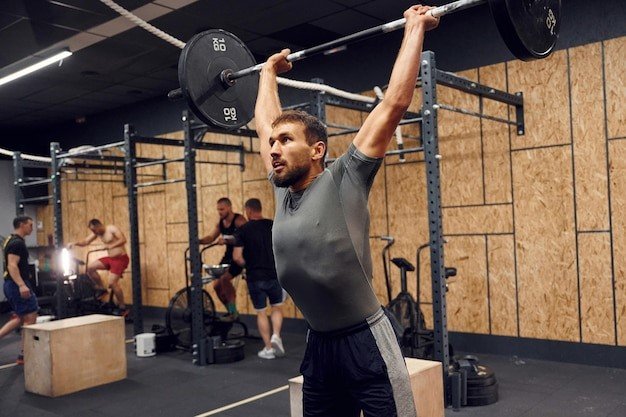
Resistance exercise can lessen the buildup of liver fat, thereby improving liver health. By improving insulin sensitivity, it lowers the chance of developing fatty liver disease.
Resistance exercise improves muscle mass, which can improve blood triglyceride levels and glucose regulation, both of which are beneficial to liver function. Research indicates that resistance training can lower liver disease-related inflammatory markers.
Incorporating exercise into lifestyle for liver disease prevention such as non-alcoholic steatohepatitis (NASH) and non-alcoholic fatty liver disease (NAFLD). It supports overall liver health and metabolic function in addition to dietary treatments. Since obesity is a major risk factor for liver illnesses, resistance training also helps with weight management, which is important for liver health.
Flexibility and Balance Exercises

Yoga and tai chi are examples of flexibility activities that help improve circulation throughout the body, including the liver. Indirectly supporting liver function, balance activities like standing on one leg or utilizing a balance board can strengthen core muscles and increase overall stability.
Stretching exercises can be incorporated into your exercise regimen to assist alleviate stiffness throughout the body, including the area surrounding the liver. Core-strengthening exercises such as Pilates help improve posture and release hepatic strain.
Frequent exercise can help manage weight and lower the risk of fatty liver disease. This includes exercises for balance and flexibility. A varied exercise regimen can enhance general health, which may have a beneficial effect on liver function by lowering stress and boosting immunity.
Incorporating Exercise into Lifestyle for Liver Disease Prevention

It is crucial to lead a healthy lifestyle in order to prevent many health issues, and this is especially true when it comes to liver health. The liver is an essential organ in the body that is in charge of metabolism and cleansing. It is also essential to general health. But around the world, cirrhosis and fatty liver disease are becoming more common, mostly as a result of sedentary lifestyles and unhealthful eating habits. This is when regular exercise becomes an effective preventive measure in one’s everyday routine.
Setting Realistic Exercise Goals and Establishing a Routine

- Establishing objectives requires first assessing your present state of health and fitness.
- For advice specific to your requirements, especially if you have concerns about the health of your liver, speak with a liver treatment doctor.
- Establish SMART goals—specific, measurable, achievable, relevant, and time-bound.
- Strive for a well-rounded workout regimen that incorporates flexibility, strength, and cardio activities.
- In particular, if you’re new to exercising, gradually increase the duration and intensity to prevent overexertion.
- Include enjoyable things in your routine to keep yourself motivated and consistent.
- Make consistency your first priority and schedule regular workouts throughout the week.
- Pay attention to your body’s needs and modify your regimen accordingly, particularly if you feel any pain or discomfort.
- Regularly check on progress and acknowledge minor victories along the way.
Finding Enjoyable Physical Activities to Sustain Motivation

- Try out a variety of athletic pursuits to see the ones you most enjoy.
- Think about engaging in sports, dancing, swimming, or hiking.
- Participate in group activities to gain motivation and social support.
- To keep track of your progress and stay motivated, set attainable goals.
- In order to make your routine sustainable, include engaging activities.
- Try to find ways to enjoy exercising, such working out with friends or while listening to music.
- Put your attention on things that support liver health as well as general health.
Consulting Healthcare Providers for Exercise Recommendations, Especially for Those with Existing Liver Conditions

- Speaking with liver treatment doctors guarantee that workout regimens are customized for those with liver diseases.
- Based on the patient’s state, liver expert doctors can evaluate the patient’s health status and identify the dangers and advantages of exercise.
- When creating safe exercise regimens, doctors at the best liver transplant hospital in India take the patient’s medical history—including any liver function test results—into account.
- Doctors at the best liver transplant clinic can assess a patient’s response to exercise and modify suggestions based on regular consultations.
- Health care providers can offer advice on how to avoid problems during exercise, such as avoiding specific actions or intensities.
- Patients are taught by providers the value of exercise in the treatment of liver diseases as well as safe ways to incorporate it into daily life.
- Patients are taught by providers the value of exercise in the treatment of liver diseases as well as safe ways to incorporate it into daily life.
- Providers at the best liver transplant hospital in India can talk about potential interactions between exercise and drugs for liver problems and modify advice accordingly.
- In order to improve overall health outcomes, healthcare providers provide encouragement and assistance to promote adherence to exercise programs.
It is impossible to exaggerate the importance of exercise in preventing liver disease. Regular physical exercise is essential for preserving a healthy weight, lowering the risk of obesity, and enhancing liver function as well as delaying the onset of diseases linked to the liver. As we put our health first, we must recognize that exercise plays a critical role in protecting the health of our livers. Liver Treatment India is a helpful resource for anyone looking for detailed information and direction on available liver treatment choices in India. We also provide a wealth of information regarding best liver transplant hospital in India and have tie ups with top liver expert doctors, enabling people to make educated choices and take proactive measures for their general well-being and liver health.
